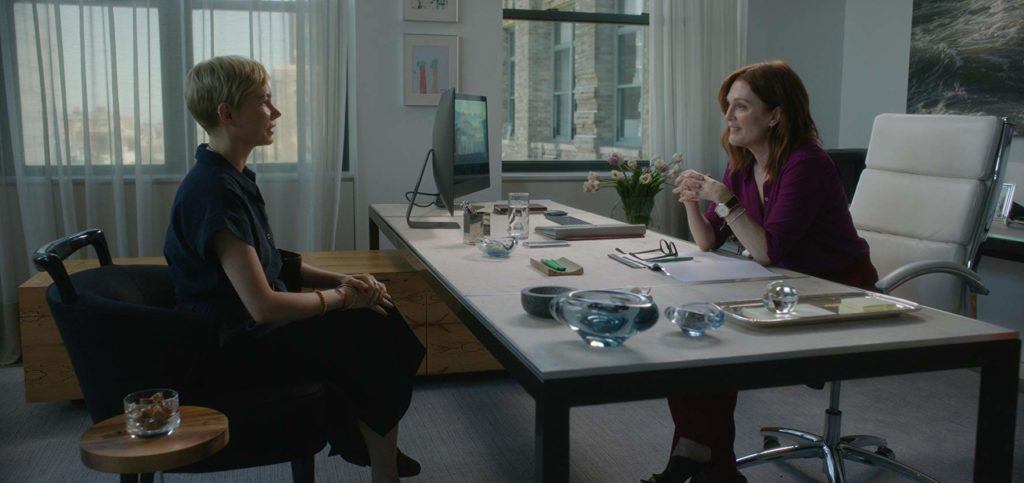After the Wedding

Michelle Williams as Isabel and Julianne Moore as Theresa in AFTER THE WEDDING. Photo: Sundance Institute.
It offers a fresh contemporary twist on a proven dramatic concept, yet After the Wedding unleashes a what-if scenario that feels more manipulative than provocative.
Despite some sharp performances and intriguing character dynamics, this gender-swapped remake of an Oscar-nominated 2006 Danish film struggles to come to terms with its past — just like its characters.
This reworking of the first film shifts the focus from Copenhagen to New York. Actually, it begins in India, where Isabel (Michelle Williams) manages an orphanage looking to raise funds to handle an influx of children.
She thinks she’s found her benefactor in Theresa (Julianne Moore), a flaky but demanding media mogul who, after their initial meeting, insists that Isabel spend the weekend in New York and attend her daughter’s wedding.
Isabel reluctantly agrees to jump through Theresa’s hoops, only to discover at the extravagant nuptials that Theresa is married to Oscar (Billy Crudup), a sculptor who has crossed paths with Isabel in the past. The awkward reunion includes secrets about the bride (Abby Quinn), whose relationship with her parents causes Isabel to question Theresa’s motives, as well as her generosity.
As the dirty laundry piles up, jealousy and resentment simmer beneath the surface for all four of them. Along the way, with varying degrees of sincerity, the film explores fractured families, maternal instincts, redemption and reconciliation, and the sometimes fickle connection between philanthropy and morality.
As with its predecessor, this screenplay by director Bart Freundlich (The Myth of Fingerprints) requires audience buy-in for the tenuous coincidence that sets the plot in motion. And it tends to exacerbate the same melodramatic pitfalls, especially during a labored final act.
Reversing the gender of the main characters from the original film doesn’t steer the story in any meaningful new directions, either, although it does allow two stellar actresses to play empowered women, so that’s something.
Williams and Moore bring depth and complexity to the mediocre material. Williams makes Isabel’s compassion feel genuine, while Moore — Freundlich’s real-life spouse — generates modest sympathy for the otherwise cold and calculating Theresa.
The film maintains a frustrating emotional distance, regardless of whether moviegoers will connect with its stuffy artistic types. After the Wedding isn’t worth a long-term commitment.
Rated PG-13, 112 minutes.